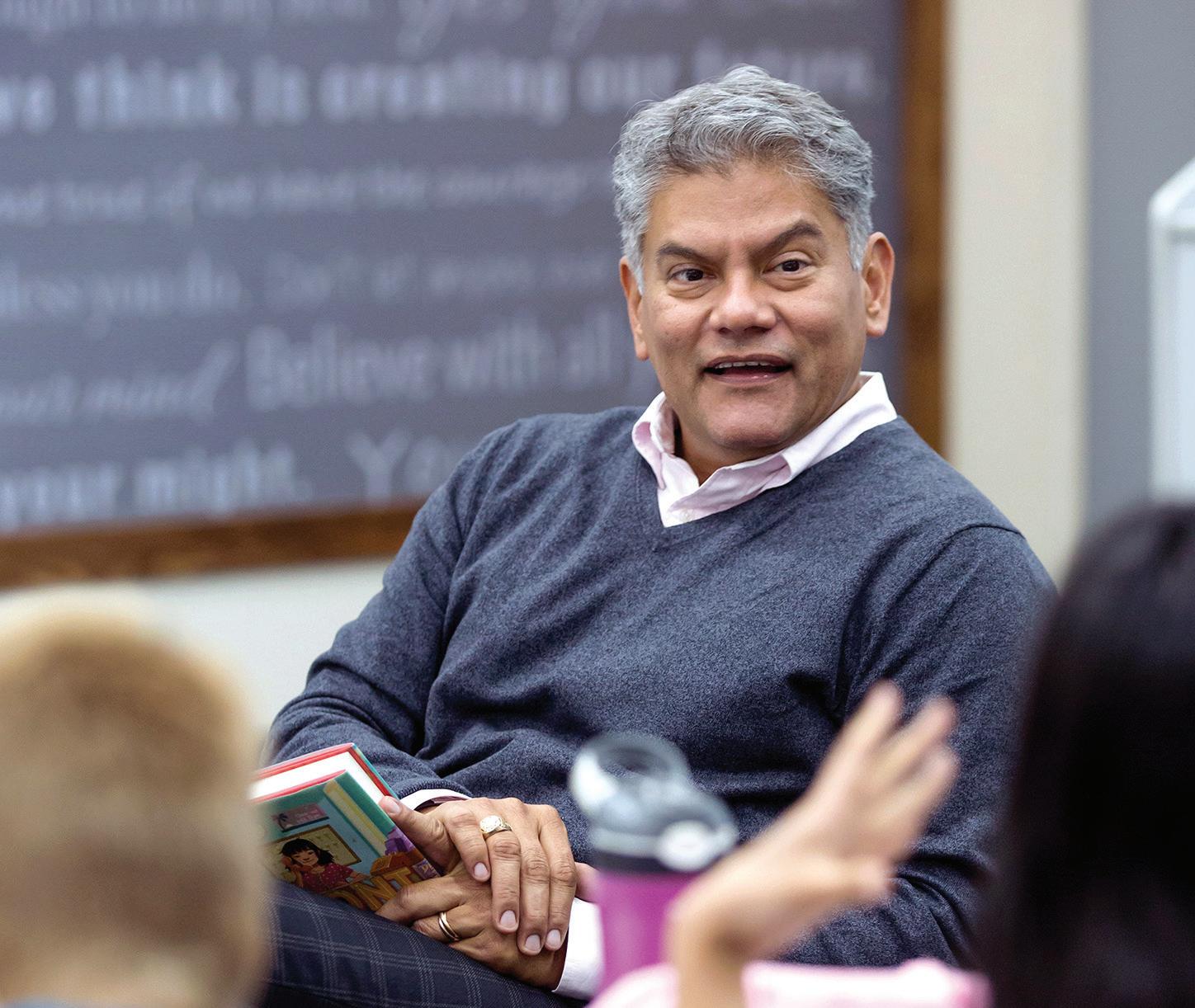
2 minute read
Head’s Message
Equipping for Students Success
This past November, I gathered a group of fourth and fifth grade Battle of the Books (BOB) students to discuss Kelly Yang’s Front Desk. It’s one of 20 books they’ll read for this year’s competition, chosen partly because it tackles difficult issues relevant to our current social discourse. Ten-year old Mia lives in a motel where her parents, Asian immigrants who manage the motel, hide refugees in the vacant rooms. The story allows young readers access to a nearby world that feels pretty foreign. Yang lets them walk around in shoes that might fit, but were worn by someone else.
Advertisement
While the book raises several tough topics, our students met them with curiosity, empathy, and an emotional intelligence that struck me. One boy read the book three times, never without crying. Another recognized the difference between a motel and hotel, and realized his family never stayed in motels. They saw themselves inside the characters. Many also saw their own privileges. We talked about justice, fairness, and why certain characters weren’t treated the same. The conversation, more than educational, felt very poignant. And very “Pegasus.”
What makes Pegasus different? I hear this question often. The answer is simple: Pegasus educates engaged citizens in addition to curious scholars. We emphasize compassion as well as grit; empathy alongside resilience. We test students’ hearts as much as we stretch their minds, and explore who they are as individuals while recognizing their place in a complicated world. But simple answers are often challenging to execute. In this edition, we explore some of these challenges. Our two feature articles introduce our Social and Emotional Learning program and how we’ve addressed concerns raised by our alumni about the stress, anxiety, and pressure they felt as Pegasus scholars. We explore the importance of creativity in our intellectual journey. And we highlight the insightful work of Dr. Michele Borba, who we brought on campus last fall to address the concept of empathy. Dr. Borba also made us aware of the ambivalent role of technology in both our children’s current lives and their future.
I take enormous pride in this community and its willingness to adapt and engage in important discourse. This edition explores many of these adaptations and evolutions. Pegasus educators don’t flinch. No one shies away from tough topics.
Instead, we address them head on—with curious minds, open hearts, empathetic ears, and an eye for creative solutions.
At the end of my session with our BOB group, one student said, “My favorite page was the one that announced the sequel.” Pegasus continues to write its own sequels, each chapter building on the one that came before. Education is a conversation. We listen and respond, as we’ll always do.
I hope you’ll see yourselves in these pages—your place in our community and our conversation— just as our BOB scholars did in Front Desk. No one cares how much you know until they know how much you care. –Theodore Roosevelt

Jason Lopez Head of School










